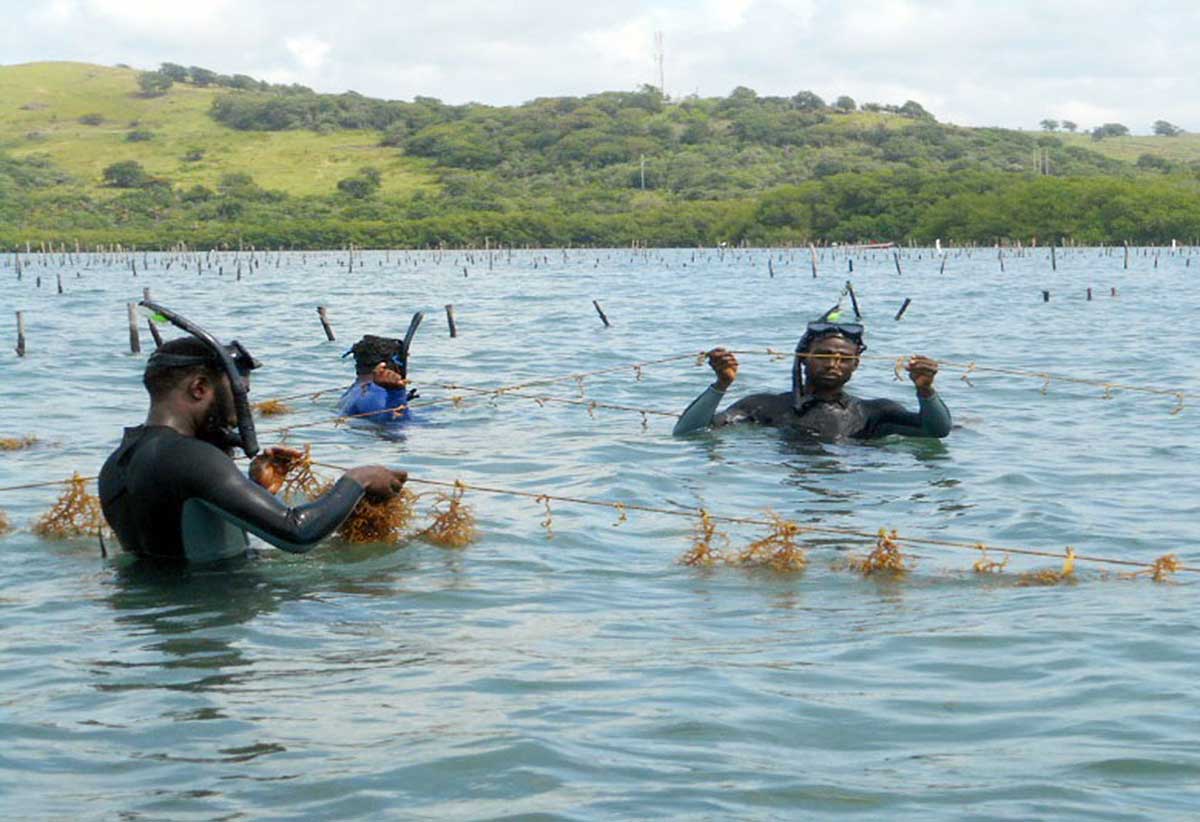
Export Saint Lucia (ESL) is set to regulate sea moss production standards in the country. Starting October 1, a new certification will be required for all sea moss exports.
As the demand for Saint Lucia sea moss continues to grow, ESL states that this certification will ensure the sea moss meets global safety and quality standards. According to ESL data, sea moss export sales have surged by 11,000 per cent making it essential to ensure suppliers produce quality crops. Consequently, sea moss farmers will need an export certificate to trade their products.
Highlighting the importance of maintaining a quality product in the global market, ESL’s CEO Sunita Daniel mentioned that about 90 per cent of the island’s production is exported to the USA.
“Export values have increased by 11,000 per cent in recent years, making sea moss a crucial product for Saint Lucia,” said Daniel. She also noted significant growth in markets in Australia, New Zealand, and the European Union as demand for Saint Lucia’s sea moss increases.
“We have seen international growth for our sea moss product, and it is important that we adhere to the highest international standards,” she emphasized.
Currently, anyone can export sea moss, but this will change. Ms Daniel said, “We are now going to enforce rigorous phytosanitary standards, implement advanced traceability systems, and ensure good manufacturing practices and Hazard Analysis and Critical Control Points (HACCP) systems are in place.”
ESL will work with sea moss exporters to ensure they meet these requirements before obtaining an Export Saint Lucia Certificate. Notably, during the COVID-19 pandemic in 2020, Saint Lucia’s sea moss gained global recognition for its quality, providing livelihoods for many in the farming industry and being celebrated for its authenticity and nutritional benefits.
The sea moss export certificate issued by ESL will incorporate HACCP systems, along with necessary phytosanitary conditions and certifications.
To qualify for the certificate, sea moss farmers must meet several criteria, including:
Proper Drying and Curing Facilities: Farmers must have suitable drying and curing tables for sea moss.
Location of Cultivation: The environment where the sea moss is grown will be scrutinized.
Processing Facilities: The conditions under which the sea moss is processed are also critical.
Additionally, ESL has appointed a field officer who will conduct weekly visits to sea moss farms. This officer is responsible for assisting farmers in meeting the requirements and providing guidance and support to ensure necessary improvements are made.
ESL emphasizes that the certification aims to assure purchasers of the safety and quality of Saint Lucia’s sea moss, protect the integrity of the industry, and bolster the reputation of local sea moss worldwide.
Furthermore, Ms Daniel reported that the agency has partnered with a United Kingdom (UK) company managed by Trevor and Lisa called ‘Caribbean Grown Mange’. ESL has “opened a nook in that store where we offer Saint Lucian products.”
She added that ESL plans to export locally made products, including arts and crafts, confectionaries, and other goods, as part of its ‘Taste of Saint Lucia Tour’. This initiative aims to extend trade to other key markets in the USA, Canada, Europe, and Dubai.




![Attendees at the UHC logo and website launch [Photo credit: GOSL]](https://thevoiceslu.com/wp-content/uploads/2026/02/Attendees-at-the-UHC-logo-and-website-launch-380x250.jpg)






![Remnants of an alleged drug boat blown up in a lethal strike by the U.S. military last week surfaced off Canouan on Saturday [Photo credit : St Vincent Times]](https://thevoiceslu.com/wp-content/uploads/2026/02/Remnants-of-an-alleged-drug-boat-blown-up-380x250.jpg)

